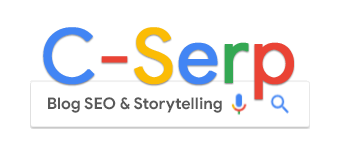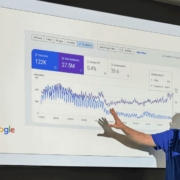As Google shifts to AI search, legacy SEO faces a new reality

“SEO isn’t dead; it’s deprecated.”
These five words from Michael King‘s SMX Advanced presentation on “the end of SEO as we know it” have really stuck with me since I watched his excellent presentation earlier this month.
On the surface, it may seem like business as usual for SEOs. After all, Google sees 5 trillion searches a year.
However, for every 1,000 U.S. Google searches, only 360 clicks go to the open web, according to SparkToro and Datos data.
- By the numbers, that means Google is sending an estimated 1.8 trillion searches to the open web each year. The other 3.2 trillion Google searches? Those are either zero-click or lead searchers to another Google property (e.g., YouTube, Maps, Images).
It’s the end of SEO as we know it…
SEO has been declared dead multiple times, every year, since the early 2000s. It’s been our version of “The Boy Who Cried Wolf” for two decades. But don’t forget: even in that fable, eventually the wolf did come.
There are plenty of other signs that appear to confirm what King said.
Google Search traffic’s ‘inevitable’ decline
Google executives saw the writing on the wall in October, according to an internal memo released as evidence as part of one of Google’s ongoing monopoly trials:
- “We have 3 options: (1) Search doesn’t erode, (2) we lose Search traffic to Gemini, (3) we lose Search traffic to ChatGPT. (1) is preferred but the worst case is (3) so we should support (2)”
Google’s AI evolution
Google is evolving toward AI Overviews. Alphabet/Google CEO Sundar Pichai literally told us during this 2024 earnings call, before the opt-in experiment called Search Generative Experience (SGE) was rebranded as AI Overviews and rolled out to users by default.
Meanwhile, AI Mode appears to be the future, whether it becomes the default Google “Search” interface or parts of it are folded into AI Overviews.
What Googlers have told us
The goal since the beginning of Google has been the “Star Trek” computer – where you get an answer, not a list of links. As Google employee number one Craig Silverstein put it in 2008:
- “We need to make search as good as a human answering a search request. We need to be like the computer on ‘Star Trek.’”
Google will look much different before we get to 2033, when conversation will be the interface – not a search box. That’s according to DeepMind cofounder Mustafa Suleyman.
Even Google’s mission statement tells you everything you have to know about where Google is going:
- “Google’s mission is to organize the world’s information and make it universally accessible and useful.”
There is nothing in there about providing links or sending traffic to websites.
Organic traffic is indeed vanishing
King predicted in his 2023 Search Engine Land article (How Search Generative Experience works and why retrieval-augmented generation is our future) that we’d see fewer clicks and click-through rates plummet. He was right.
Gartner predicted in 2024 that search engine traffic will fall by 25% by 2026. Many SEOs laughed off this prediction. However, some sites have already experienced such a drop – or even a larger one.
Cloudflare CEO Matthew Prince isn’t laughing. They’re calling Google and other AI platforms out for behavior they believe will kill the business model of the web. Namely, stealing traffic from publishers.
The great decoupling of Google Search
Clicks are flat or down, yet impressions are going up. It looks like this:

- Why is this happening? Because AI Overviews count as one block and AI Overviews typically appear in the first organic position. So if your website is cited in an AI Overview, that counts as an impression – but clearly, a whole lot of websites aren’t getting as many clicks from appearing in Position 1 or 0 as you would have in SEO days gone by.
Google’s Martin Splitt explained the great decoupling like this:
- “We’re seeing that clicks might stagnate or go down, but either people convert later in the customer journey, without search involved in the later stage directly (no search click, but still a conversion, despite nearly impossible to attribute to an earlier impression). And the clicks you get through search are more likely to be clicks that convert.”
In other words: good luck with SEO attribution heading forward.
Generative information retrieval
SEO has been deterministic until now. Certain inputs resulted in fairly predictable outputs.
This new era of information retrieval is probabilistic. We’re in the midst of a slow-moving transition from getting a list of links to webpages to getting synthesized, direct answers, often in the tone and style of a helpful assistant – all heavily influenced by patterns, personalization, and word choice.
Dig deeper. How generative information retrieval is reshaping search
It’s not just SEO
To be clear: SEO isn’t going anywhere. It still matters and will continue to be a thing. (Until it isn’t, whenever that is.) Lily Ray, vice president, SEO strategy and research at Amsive, published a good article (The Rise of AI Search Does Not Mean ‘SEO is Dead’) about this the other day.
I’m not among those talking about rebranding SEO (even though SEO doesn’t have the best reputation and the name “SEO” never really made sense – we don’t optimize a search engine, as Mike Grehan has said many times).
But it’s impossible to ignore this new “thing.” Even if we don’t know what to call it yet. Among the contenders:
- SEO: But not search engine optimization. Rather we’re talking about search everywhere optimization. (Nikki Lam, VP and head of SEO at NP Digital, discussed this concept in her popular July 2024 article Search everywhere optimization: 7 platforms SEOs need to optimize for beyond Google.)
- GEO: Generative engine optimization as a term was first discussed in a December 2023 research paper and has gained some traction in the greater marketing world. Search Engine Land features GEO as a category and we have a popular article that explains what GEO is.
- AEO: Answer engine optimization appeared at some point after GEO – and has also gained some traction within marketing. GEO and AEO are essentially synonymous at this point.
- AI SEO: This term is floating around a little bit, but it seems to be more used within SEO regarding using AI to assist with SEO-related tasks. (There was also AIO – or AI optimization – but the arrival of Google’s AI Overviews basically killed that term because Google and some publishers refer to AI Overviews as AIO.)
- LLMO or LLMSEO: I’m personally not a fan of either of these. They’re a mouthful and haven’t gained any traction.
What it all means
Legacy SEO still works – and will continue to work for some amount of time. However, the return on your investment in SEO likely won’t be as great as it was in prior years for many websites. That’s just the reality.
I will never go so far as to say clicks/traffic are vanity metrics. For publishers (like Search Engine Land) traffic continues to matter. Google impressions don’t pay salaries. And I agree with what Cyrus Shepherd, owner of Zyppy SEO consulting, shared recently on LinkedIn:
- “As Google reduces traffic to publishers, can we plz stop saying ‘clicks don’t matter?’
- Not every website runs on e-commerce. Not every website is a ‘business’ either. The open web was/is a rich source of information, freely distributed, spreading ideas and information.
- Clicks helped support that information. Clicks helped create magical things.
- And yes, clicks helped make some not-so-great things, too. Chasing clicks too easily becomes a race to the bottom.
- Clicks helped support creation, encouraged journalism, and ensured that no single entity controlled the flow of information.
- Not everything on the web needs to end in a sale.”
But the reality is that website traffic has gone down and will continue to.
Google organic search traffic is gone and isn’t coming back.
So keep doing legacy SEO – but evolve.
Because, as Ryan Jones, senior vice president, SEO, at Razorfish, said it on LinkedIn:
- “It’s not about the query anymore. It’s about semantic relevance to the topic.”
Because the future is not about ranking pages – it’s about creating a notable, trustworthy brand that gets cited and mentioned. Wherever, whenever, and however you can.


